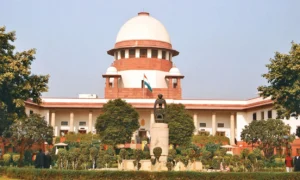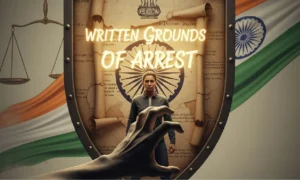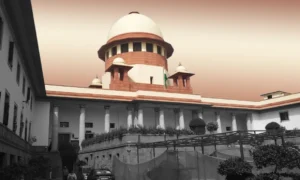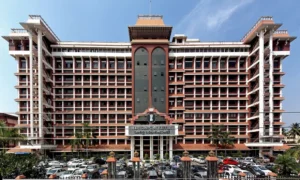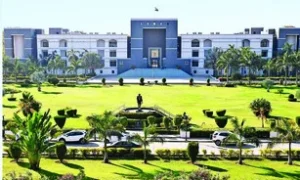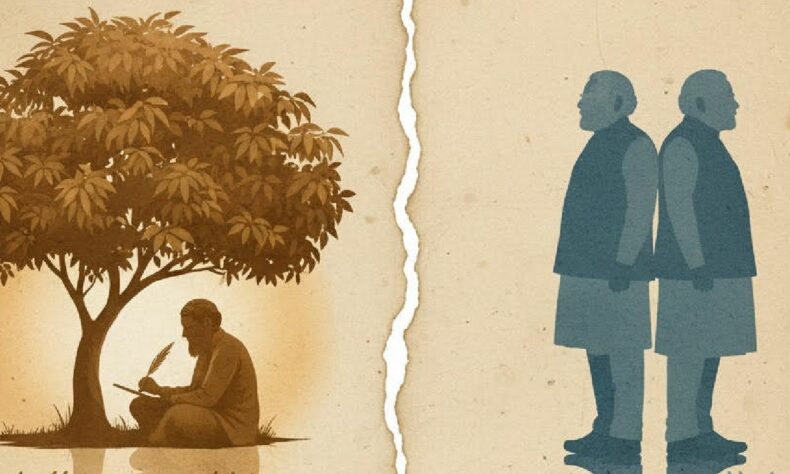
It does not matter whether Prime Minister Narendra Modi stoked the fire or whether it was Leader of the Opposition Mallikarjun Kharge; it is immaterial whether it was the BJP or the Congress. What matters is that national song Vande Mataram’s controversy is reignited.
It is another matter that for years, rather decades, except for the Bengalis everyone had mispronounced “Bande Mataram” as “Vande Mataram” conveniently forgetting that in the Bangla language there is no “V”. But Vande Mataram it became and remains so till this day.
But the “B” or “V” apart, there is a communal angle to the revered song that was written in 1875 and published seven years later. Its author: Bankim Chandra Chatterjee served as a deputy magistrate and deputy collector under the then British government. Today, Bankim Chandra may be turning in his grave looking at how patriotism and nationalism is being mutilated for political ends.
Having said that, it would be incorrect and unfair to solely blame the present dispensation for this. All that it was doing was turning the pages of history: one that few have read and many haven’t.
To set the record straight, Vande Mataram was kind of a war cry for freedom fighters. The British banned it, but post-Independence it was adopted as India’s national song: placed at par with the country’s national anthem, Jana Gana Mana.
An amalgam of Bengali and Sanskrit, it was exactly six verses that Bankim Chandra wrote sitting under a mango tree in his village. He later used the poem in his novel Anandamath. However, it occupied centre stage at the Indian National Congress’ convention in erstwhile Calcutta where Rabindranath Tagore had sung it.
Given that some stanzas contained references to the goddess, a section of Muslims felt that it denotes more religious than nationalistic content and is thus un-Islamic.
It was none other than the Muslim League that said that “its heart is filled with despair and disappointment” given that “under the cloak of nationalism, Hindu nationalism is preached in India”. Muhammad Ali Jinnah said that Muslims have refused to accept Vande Mataram as the national song.
Jawaharlal Nehru was among those who wrote to Netaji Subas Chandra Bose that Vande Mataram was likely to “irritate Muslims”. He also wrote to Rabindranath Tagore expressing a similar sentiment.
Later, the Congress adopted only the first two stanzas of the song on grounds of inclusivity “only those stanzas to which no objection could be taken on religious and other grounds”, to quote from its resolution.
One hundred and fifty years on after the lyrics were written, they have been mired in controversy yet again.
Kicking off the year-long celebrations for the national song’s 150th anniversary, Prime Minister Modi reminded the country that significant stanzas of Vande Mataram were removed by the Congress: “In 1937, crucial verses of Vande Mataram, a part of its soul, were severed. Vande Mataram was broken, it was torn into pieces. This division of Vande Mataram also sowed the seeds of division of the country”, Modi said, adding that the new generation needs to know the reasons “for such injustice to this song”.
Not the one to let go, the Congress said that it was Tagore who suggested that the first two paras should be adopted. It has also demanded an apology from Prime Minister Modi for insulting Tagore and “accusing Gurudev of harbouring a divisive ideology”.
Kharge went a step further and said that neither the BJP nor the RSS ever sang the Vande Mataram or Jana Gana Mana in their shakhas or offices: “Instead they continue to sing Namaste Sada Vatsale, a song that glorifies their organization rather than the nation”, the Congress president said.
Controversy apart, one must give it to the BJP for bringing nationalism centre stage and for highlighting and sometimes attempting to correct distortions in history.
The Vande Mataram is, undoubtedly, mired in controversy, but how many knew that the national song that Indians have been singing with pride is chopped? Or stanzas dropped to appease one section of the population at the cost of another? The BJP can be put in the dock for resurrecting a controversy that was long buried, but it is the right of every Indian to know the facts and agree or disagree with BJP’s interpretation. It is the right of every citizen of this country to know history as it is rather than a version the Congress or any political party would want to sell particularly to a generation glued to the social media which routinely peddles half-truth.
Take, for instance, our freedom fighters: those who shed blood for the country, those who were sent to the gallows and those who have remained unsung. Mention India’s freedom struggle and it is only the Nehrus, Motilal and Jawaharlal, and Mahatma Gandhi who tower above all others. History, the way the Congress has showcased it, makes heroes like Subhas Chandra Bose and Sardar Vallabhbhai Patel diminutive compared to a Nehru or the Mahatma. Non-violence is a convenient slogan, but only the naïve will accept that freedom came without the sacrifices of revolutionaries like Sardar Bhagat Singh and Bose. Therefore, when the BJP-led dispensation brought Patel centre stage, be it through the towering Statue of Unity or the two-year celebration to mark his 150th birth anniversary, it can only earn kudos.
For years on, October 31 has been observed as a day of mourning. It is a day when the nation remembers India’s Iron Lady Indira Gandhi, a prime minister who was both loved and hated and one who was gunned down by her security guards on October 31, 1984. In keeping with its unwritten policy of making the party synonymous with the family, successive Congress regimes made October 31, all about her.
Had it not been for the BJP government, few outside Patel’s home-state Gujarat would even remember October 31 as his birthday. The Modi government changed it all, pushing Gandhi’s assassination into the background and pulling Patel out of oblivion. Therefore, this year when Patel’s 150th birth anniversary was celebrated, it once again brought alive history that the Congress had appropriated during its rule.
On the face of it, the BJP seems to be on track by putting history in the right context. Dig deeper and critics slam this as “pure politics”: a pitch for Hindutva in the garb of nationalism, communalism and a bid to erase the Nehru-Gandhi legacy. For those who are able to sift Hindutva from nationalism, BJP has instilled a nationalist spirit among right-minded Indians. Today the man on the street identifies with the tricolour; on August 15, shops run out of the national flag: of all textures and sizes.
In fact, it was the BJP that started the first Tiranga Yatra and that too on a large scale. Or the nationwide Har Ghar Tiranga campaign, to celebrate the 75th anniversary of India’s Independence. Though a government initiative, it soon transformed into a people’s movement, making its way to residential colonies and marketplaces.
Having said that, one cannot deny that the BJP has a gameplan. While eulogizing Patel, it intends to erase every sign of the Nehru-Gandhi legacy; by celebrating Patel on October 31st it wants to shelf Indira Gandhi’s “martyrdom” and so on and so forth.
As for Vande Mataram, while the saffron party flags the spirit of nationalism, there is a sub-text of Hindutva that it intends to weave in: Hindutva that fanatics would wish to see translated as communalism. And this is where the real danger lies: an attempt to cement the country through the national song, but at the same time fragmenting it through the communal pitch.
—The writer is an author, journalist and political commentator
📰 Crime Today News is proudly sponsored by DRYFRUIT & CO – A Brand by eFabby Global LLC
Design & Developed by Yes Mom Hosting

